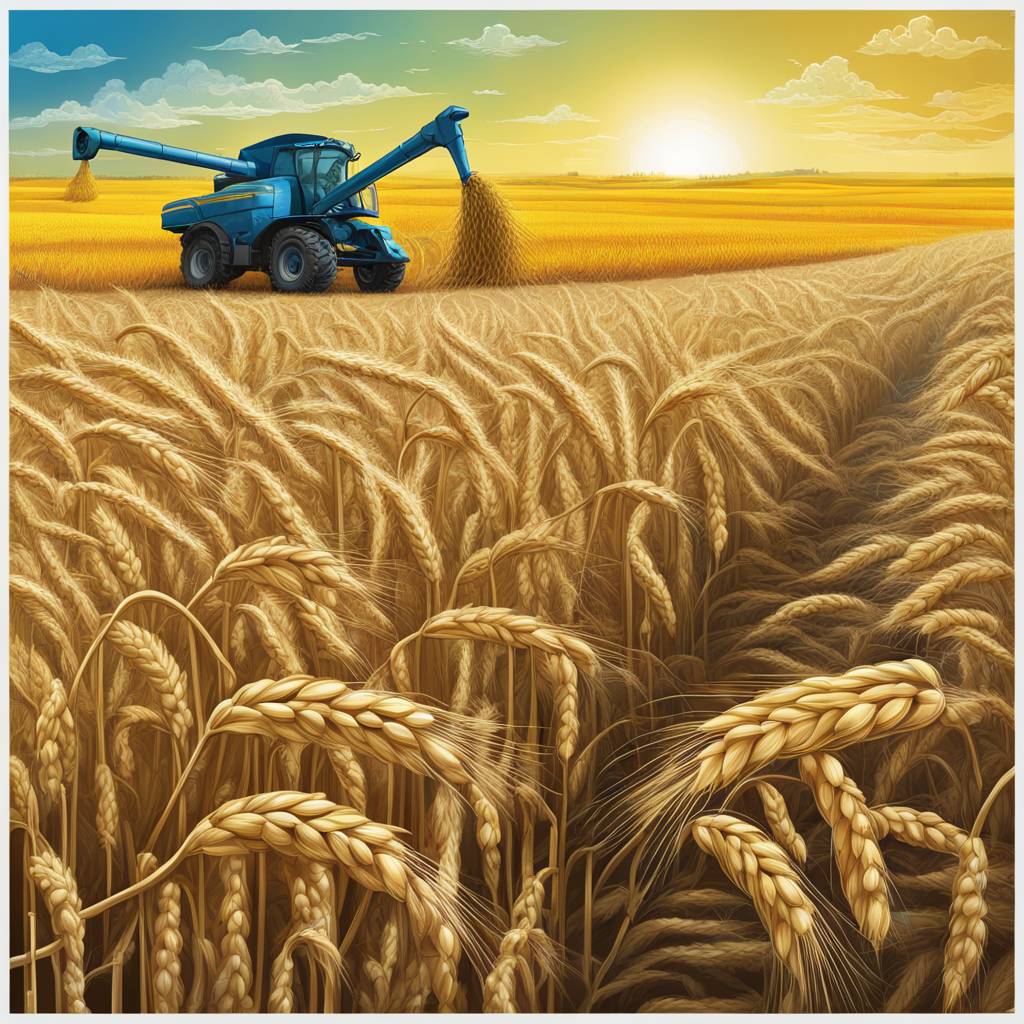The ongoing war between Ukraine and Russia is having a major impact on the global grain market, particularly on wheat prices. Both countries, which are key players in the wheat export market, are believed to be selling wheat at prices below the cost of production in order to fund their war efforts. This artificially low price of wheat could lead to a bounce back in prices and push inflation back up.
Before the war started in late February 2022, exports of wheat from Russia and Ukraine totaled 29% of the market. This has now fallen to 14.3%, partly due to the need to offer lower prices to keep government coffers full. However, there are concerns that the current situation is not sustainable and that eventually, growing wheat at a loss will bankrupt farmers, leading to a further decrease in supply and potential increase in prices.
There are predictions of unfavorable weather events that could further impact the wheat market. A potential late frost in the U.S. in early May could reduce crop yields, while dry weather in a key growing region in southern Russia near the Black Sea could also affect supply. If these weather events occur, experts expect the price of wheat to trend back up after months of falling, with even higher prices if both events happen.
Recent data shows that the price of wheat has fallen significantly, from $7.57 a bushel last July to $5.62 a bushel currently. However, the impact of weather events on the market is hard to forecast, so investors should be prepared to adapt their strategies accordingly. The current situation highlights the vulnerability of the global grain market to political and environmental factors, and the importance of monitoring these developments for potential economic impacts.
It is clear that the war between Ukraine and Russia is not only affecting the lives of millions of people in the region but also has far-reaching consequences on the global economy, particularly in the grain market. The need for both sides to fund their war efforts has led to artificially low wheat prices, which could have repercussions on inflation and farmers’ livelihoods. The upcoming weather events forecasted could further disrupt the market and lead to increased prices, highlighting the need for vigilance and preparedness in the face of uncertainty.















